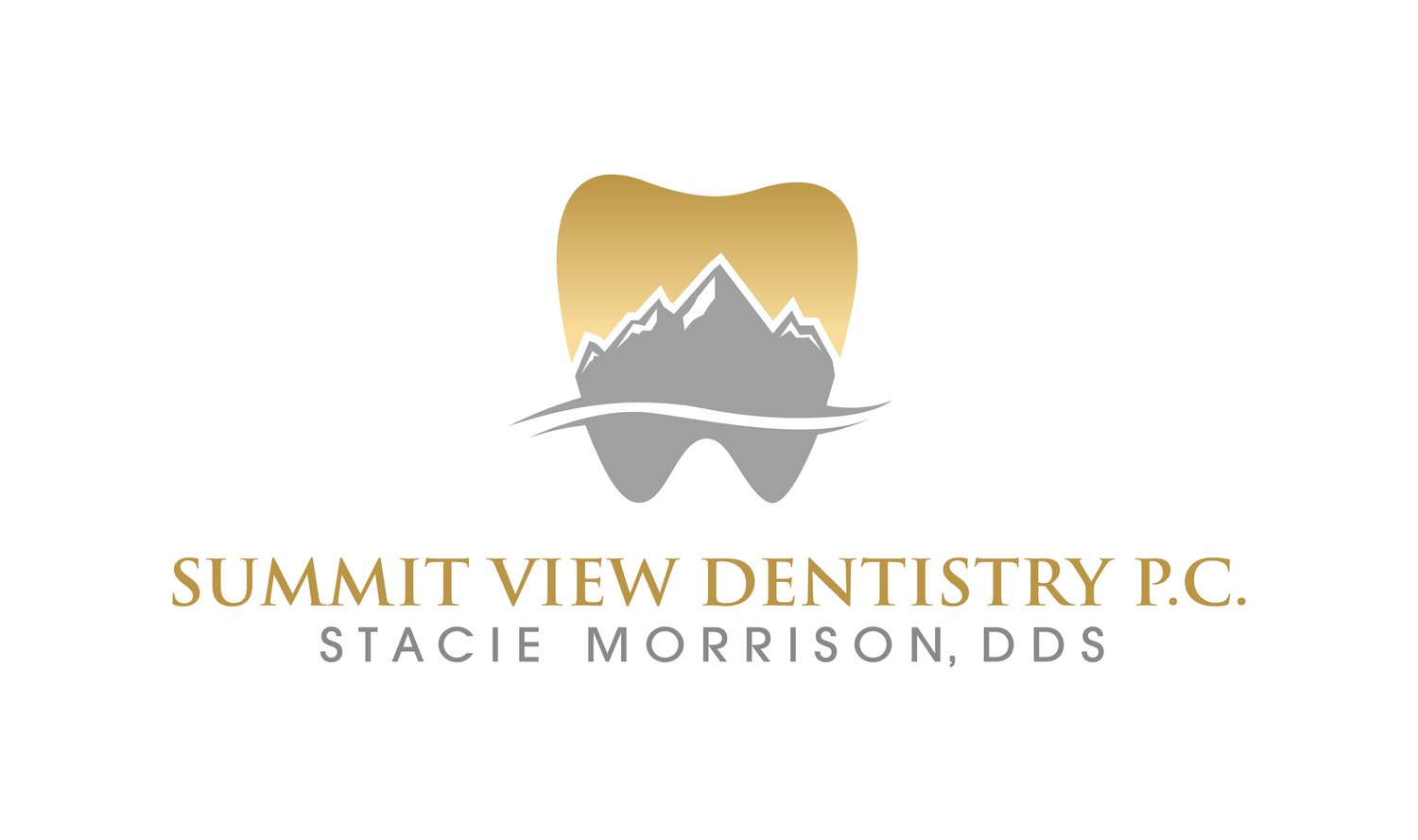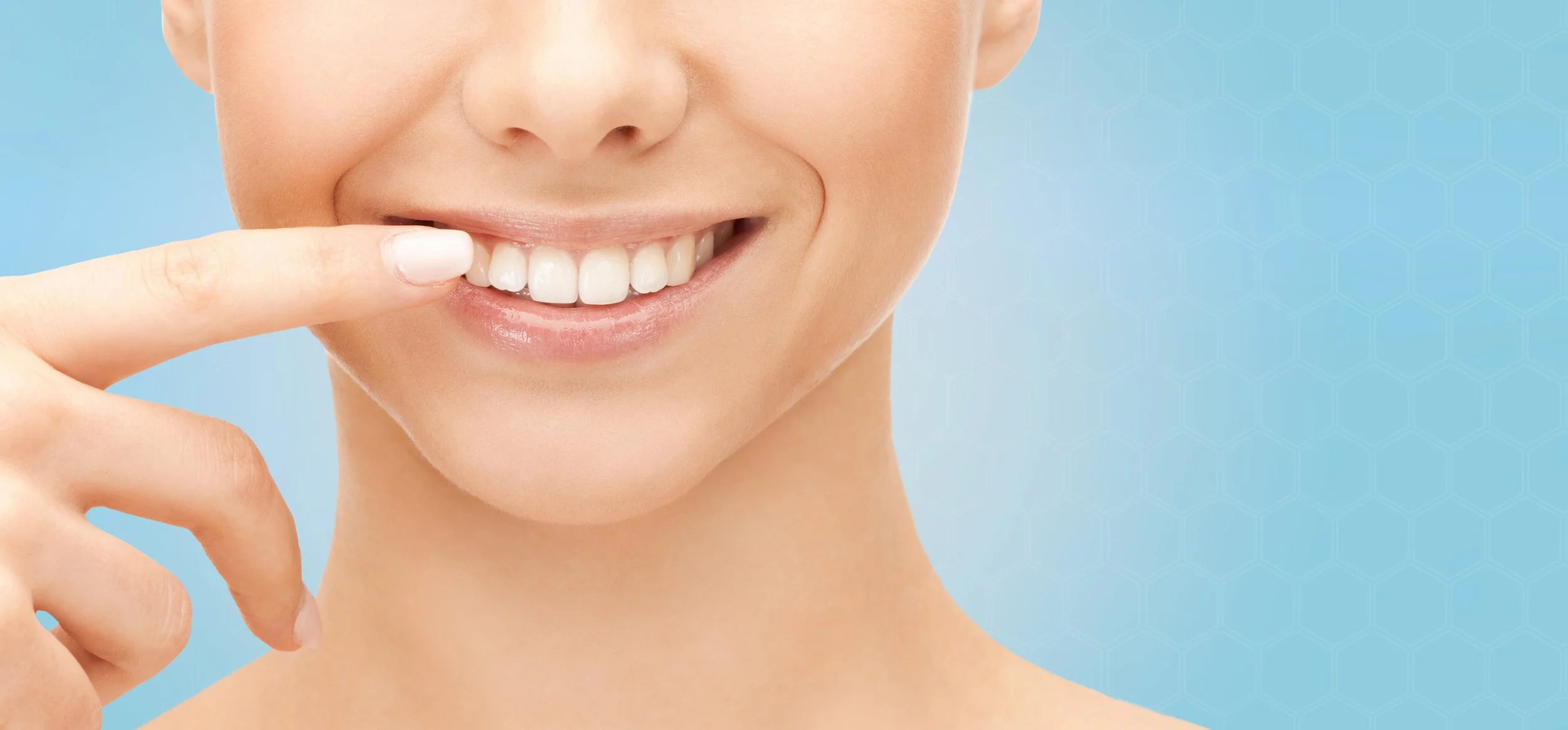What Are the Best Ways to Strengthen Weak Teeth Naturally?
Meet Dr. Stacie Morrison
Dr. Stacie Morrison, a Gold Invisalign Provider, a proud Wyoming native, grew up in Cheyenne and began her journey in dentistry at the University of Wyoming before earning her dental degree from the University of Nebraska College of Dentistry. After practicing in her hometown for several years, she realized her heart belonged in Laramie's warm, close-knit community. Fueled by a dream to build her dental practice, she returned to Laramie to create a space where personalized, compassionate care thrives.
Beyond the dental chair, Dr. Morrison enjoys life with her husband, Jake, and their two sons, Lincoln and Lachlan. You'll often find her cheering on local teams, from Laramie High School to her alma mater, the University of Wyoming. A former college cheerleader herself, Dr. Morrison now channels that same spirit into helping patients achieve confident, healthy smiles, especially through her passion for Invisalign!
Introduction
Weak teeth often start as a subtle issue - a little extra sensitivity to cold water or a dull ache when chewing. Over time, that minor discomfort can grow into something more serious, like chips, discoloration, or frequent cavities. At Summit View Dentistry, Dr. Stacie Morrison on natural remedies for weak teeth teaches that strengthening enamel isn’t just about in-office treatments - it’s about daily habits that nurture your smile naturally.
This guide explores how to rebuild tooth strength, improve enamel resilience, and maintain a strong, confident smile - all through consistent, simple changes you can make at home.
Understanding What Causes Weak Teeth
Your teeth are covered with enamel - the hardest substance in your body - but that doesn’t mean it’s indestructible. Over time, enamel can wear down due to diet, habits, and environmental factors.
Common causes of enamel weakness include:
Acidic foods and drinks: Citrus, soda, and vinegar dissolve minerals in enamel.
Dehydration or dry mouth: Without enough saliva, acids linger and erode enamel.
Aggressive brushing: Hard-bristle brushes or harsh strokes can scrape enamel away.
Teeth grinding (bruxism): Repeated pressure slowly weakens tooth structure.
Sugar exposure: Bacteria feed on sugar, producing acids that damage enamel.
Dr. Morrison compares enamel to glass - strong yet fragile if not protected. The key to natural tooth strengthening is remineralization - a process where lost minerals like calcium and phosphate are restored through diet, saliva, and proper care.
How to Rebuild Tooth Strength with Dr. Stacie Morrison’s Care
Every treatment plan at Summit View Dentistry begins with a deep understanding of the patient’s oral health. During your initial visit, you’ll receive a full dental scan, photos, and X-rays. These tools allow Dr. Morrison to identify enamel thinning, sensitivity patterns, and risk areas early.
How to rebuild tooth strength with Dr. Stacie Morrison’s care goes beyond procedures - it’s about education and prevention. She helps patients learn how to protect enamel, reduce acid exposure, and make small daily changes that lead to lasting results.
Dr. Morrison’s approach includes:
Fluoride protection: Strengthens weak enamel and fills microscopic pores.
Micro-polishing (IPR): A gentle way to reduce plaque traps and support cleaning.
Full-time aligner wear: Invisalign trays are worn 24/7 - even while eating and drinking - to protect enamel from grinding and movement.
Because Dr. Morrison uses advanced ClinCheck technology, her Invisalign cases are completed in an average of six months - a testament to how precision and consistency make dental care more effective.
Strengthening Enamel Naturally Explained by Dr. Stacie Morrison
Nature already provides what your teeth need to stay strong - you just have to know where to find it. Strengthening enamel naturally explained by Dr. Stacie Morrison focuses on lifestyle and dietary changes that enhance your body’s ability to protect your smile.
Stay Hydrated
Water is your enamel’s best friend. It keeps saliva flowing, which neutralizes acid and delivers calcium and phosphate back to the enamel surface. Sip water regularly throughout the day, especially after meals or acidic drinks.
Choose the Right Foods
Food can either rebuild or weaken your enamel. Dr. Morrison recommends a balanced diet that includes:
Calcium-rich foods: Milk, yogurt, cheese, and leafy greens.
Phosphorus sources: Eggs, fish, nuts, and lean meats.
Crunchy vegetables: Carrots and celery act as natural scrubbers for plaque.
Antioxidants: Green tea helps balance oral bacteria and reduce inflammation.
Rinse, Don’t Rush to Brush
After consuming acidic foods or beverages, rinse your mouth with water instead of brushing right away. Brushing too soon can remove softened enamel, causing more harm than good.
Chew Sugar-Free Gum
Chewing gum with xylitol boosts saliva flow and prevents bacteria from producing acid. It’s a simple and effective way to strengthen enamel naturally throughout the day.
Foods and Habits That Harm Enamel
Even with good habits, some foods and routines can work against your efforts. Understanding what to avoid is as important as knowing what to include.
Avoid or limit:
Sodas and energy drinks: Contain citric and phosphoric acid that break down enamel.
Sticky candies: Keep sugar in contact with your teeth for long periods.
Coffee, wine, and colored sauces: Cause surface staining and acid wear.
Frequent snacking: Keeps your mouth in a constant acidic state
If you indulge in any of these occasionally, follow it with a water rinse or eat enamel-friendly foods like cheese to neutralize acids.
Daily Patient Tips for Healthier, Stronger Teeth from Dr. Stacie Morrison
Daily consistency matters more than anything. Patient tips for healthier, stronger teeth from Dr. Stacie Morrison are simple, science-backed, and easy to follow.
Use a soft-bristle toothbrush: It cleans effectively without harming enamel.
Brush with mineral toothpaste: Look for fluoride or hydroxyapatite to remineralize enamel.
Brush before bed: Overnight plaque hardens; brushing at night keeps enamel safe.
Wear Invisalign trays all the time: Dr. Morrison advises wearing trays while eating, drinking, and sleeping - removing only for oral hygiene.
Avoid overbrushing: Gentle circles are more effective than forceful scrubbing.
Drink water regularly: Keeps your mouth clean and prevents dry mouth.
Dr. Morrison’s patients often find that within a few months of consistent care, sensitivity decreases, teeth appear smoother, and their smiles feel stronger overall.
When Natural Strengthening Isn’t Enough
Sometimes enamel damage is too advanced for natural remedies alone. In these cases, Dr. Morrison may recommend professional treatments to restore and protect teeth.
In-Office Options Include:
Fluoride varnish applications: Quick, painless coatings that strengthen enamel instantly.
Sealants: Invisible shields over molars that protect against decay.
Remineralization therapy: Specialized gels that restore lost minerals.
Custom retainers: Help prevent nighttime grinding and maintain alignment.
These treatments work hand in hand with natural methods to create a complete protection plan for long-term oral health.
Lifestyle Choices That Support Stronger Teeth
Beyond brushing and diet, your lifestyle plays a big role in enamel health.
Manage stress: Grinding and clenching often result from tension. Mindful breathing and relaxation techniques help protect your teeth.
Limit alcohol: It dries your mouth and increases acid production.
Avoid smoking or vaping: Both restrict blood flow to gums and slow healing.
Schedule regular checkups: Professional cleanings remove tartar that at-home brushing can’t.
When you align your habits with Dr. Morrison’s guidance, your teeth begin to recover their strength naturally - without relying on harsh products or invasive treatments.
Holistic Dental Care at Summit View Dentistry
At Summit View Dentistry, Dr. Morrison combines advanced digital planning with a natural, preventive philosophy. Every Invisalign case begins with a detailed digital scan, followed by 3D animations that show how your teeth will move. Once treatment begins, trays are worn 24 hours a day, even while eating and drinking, ensuring steady progress and enamel protection.
After completion, patients receive retainers that should be worn full-time for the first three months - a crucial step in maintaining their newly aligned and strengthened smile. This personalized, science-meets-nature approach defines how Summit View Dentistry helps patients achieve strong, confident smiles with minimal discomfort and maximum long-term success.
Key Takeaways
Enamel can’t grow back, but it can be strengthened through remineralization.
Hydration and mineral-rich foods like dairy, eggs, and greens help rebuild enamel.
Dr. Stacie Morrison on natural remedies for weak teeth emphasizes daily care, fluoride use, and mindful eating.
Wearing Invisalign trays full-time protects against enamel wear and grinding.
Consistent routines matter more than quick fixes when it comes to stronger teeth.
FAQs
Can weak enamel be rebuilt naturally?
Enamel can’t regrow, but it can become stronger through remineralization using fluoride, calcium, and phosphate. Regular hydration and proper brushing are essential.
What foods make teeth stronger?
Cheese, yogurt, leafy greens, almonds, eggs, and fish are excellent for natural enamel strength.
Do natural remedies really work for weak teeth?
Yes. Consistent habits, like drinking more water and brushing with fluoride toothpaste, significantly improve enamel durability.
Does Invisalign help protect enamel?
Yes. Wearing aligners 24/7, as Dr. Morrison advises, shields enamel from grinding and friction while helping align teeth efficiently.
When should I see a dentist about weak teeth?
If you experience persistent sensitivity, discoloration, or visible wear, visit your dentist for a professional evaluation.
Remember: Strong teeth are built through patience and consistency. With mindful choices - from what you eat to how you clean your smile - you can naturally rebuild your enamel and enjoy healthy, resilient teeth for years to come.
Disclaimer: This article is for informational purposes only and is not a substitute for professional dental advice. Always consult Dr. Stacie Morrison or your dentist for personalized recommendations.

